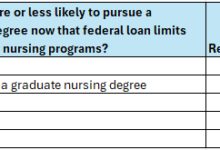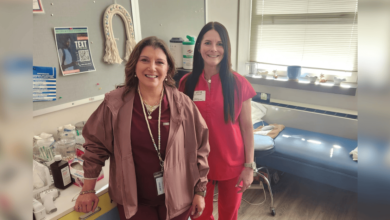Sustainability: nurses demand e-cars and waste reforms

Reducing the environmental impact of healthcare is a major challenge that the next government will need to embrace if it is to fulfil its climate promises.
The UK has pledged to reduce its greenhouse gas emissions to net zero by 2050 – meaning that, by that year, the emissions it is removing from the atmosphere will equal the amount of those it is producing.
As one of the largest contributors of emissions in the UK, the NHS will be key to achieving this ambition, which is crucial for limiting global warming and its consequences for people and nature.
The health service in each part of the UK has its own target deadline for hitting net zero: in England and Scotland it is 2040, in Wales it is 2030 and in Northern Ireland it is 2050.
As part of our Manifesto by Nurses, we asked nursing staff for their ideas on what the next government could do to support the health and care system to meet these goals.
Among your calls to action was for government to invest in greener healthcare facilities, including electric cars for nurses.
The introduction of mandatory education and training for nurses on sustainable practices was another suggestion put forward.
You also told us that radical new policies were needed to reform the way the health and care system deals with its waste.
Once complete, Nursing Times plans to deliver the Manifesto by Nurses to the main political parties standing in the upcoming general election.
Your pledges at a glance:
- Strict recycling policies
- Electric cars for nurses
- More telehealth
- Investment in greener infrastructure
- Share consumables to avoid waste
- Mandatory sustainability education
- End use of paper
What you said
Asemota Osaruese, student nurse, South West England

Asemota Osaruese
Widening the use of telehealth is a “practical and impactful strategy” for reducing the environmental impact of healthcare, said Mr Osaruese.
“By leveraging technology to connect patients with healthcare professionals remotely, societies can achieve a dual benefit: improving healthcare accessibility and minimising the environmental footprint of traditional healthcare practices,” he said.
He added that telehealth could ease the burden on the environment through reduced patient travel to appointments and decreased use of disposable medical supplies.
“Reduction of the environmental impact of healthcare is not only an environmental necessity, but a holistic approach to safeguarding public health, promoting economic sustainability and positioning the UK as a responsible global leader in the fight against the climate crisis,” he said.
“The next government’s commitment to this priority is essential for achieving a sustainable, resilient and healthier future.”
Amy Crouch, community assistant practitioner to a district nursing team, South West England
The NHS should have a stock of electric or hybrid cars for use by community nursing staff, according to Ms Crouch.
She added that trusts could help power these vehicles by installing solar panels into their buildings.
This solution would also mean that community staff would no longer have to use their personal vehicles for patient visits.
Ms Crouch said, at present, there was a “huge lack of support available to staff” to deal with the extra costs associated with using a car for work, such as repairs, insurance and breakdown cover.
“I feel that, by having electric/hybrid vehicles for all community staff to use, this would relieve a lot of staff anxiety, be much greener for the environment and, hopefully, more cost effective for the trust,” she said.
Karen Webster, student nurse, North West England
Ms Webster’s ideas for the government centred around the prevention of ill health and reduction in unnecessary medication prescriptions.
She called for “regular screening to detect risk of ill health” along with “education on lifestyle choices to help prevent this, which may prevent the need for medical intervention”.
Geraint Walker, clinical informaticist and nurse, Wales

Geraint Walker
He said the government needed to invest in green infrastructure for the health service, including “energy-saving technologies” such as solar panels and smart building systems.
In addition, Mr Walker called for new “stringent” policies for recycling and waste minimisation in healthcare facilities. As part of this, he wanted to see “cutting-edge methods” explored for disposing of, and treating, medical waste that have the least negative effects on the environment.
His third demand was for the “promotion of sustainable practices” in healthcare, including new rules governing environmentally friendly product usage and waste management, and work to raise awareness among the workforce about how their actions impact the environment.
Colin David Coates, registered nurse, East of England

Colin Coates
Mr Coates called for incentives to encourage car sharing and the use of electric cars and bikes in the healthcare workforce.
He suggested that better pay for nurses would mean they could afford newer and less-polluting vehicles.
Magdalena Snowden, nurse, team transformation consultant and empowerment coach, South East England

Magdalena Snowden
“Education, training and coaching play vital roles in fostering a culture of sustainability in healthcare organisations, particularly in achieving the ambitious goal of net-zero carbon emissions,” said Ms Snowden.
“By integrating sustainability principles into educational curricula and providing ongoing training opportunities, health professionals can develop a deeper understanding of the environmental impact of their practices and gain the skills that are necessary to implement greener alternatives,” she explained.
Ms Snowden added that coaching for healthcare workers could also help to facilitate “mindset shifts towards environmental sustainability”.
Ben Davies, co-chair, the Florence Nightingale Foundation (FNF) sustainability subject expert group, and organisational development director, Nuffield Health

Ben Davies
Mr Davies said it was the view of the FNF sustainability subject expert group that nurses and midwives “have a key role to play in meeting the government’s net-zero targets”.
He added: “Fundamental to maximising the opportunity for nurses and midwives to contribute to meeting the target is policy development that supports education, leadership and sustainable innovation and improvement.”
He said the FNF group wanted to see planetary health education embedded in all nursing and midwifery curricula, as well as regulatory standards.
In addition, Mr Davies said mandatory training that improves awareness of environmentally sustainable healthcare and understanding of the net-zero goals should be introduced for the whole health and care workforce.
Tabassum Munawaree, sister, Midlands
“Less paper, more technology” was the call to action from Ms Munawaree.
She wanted to see the end of paper printouts of patient information and, instead, accessible online digital records, as well as tablets for staff to use.
Helen Kerslake, clinical research nurse, South East England 
She wanted to see implementation of a system to enable cross-departmental sharing of consumables in the NHS, particularly products with expiry dates, such as syringes and personal protective equipment.
“As these can only be used within a strict timeframe, there are instances when these are just thrown out,” noted Ms Kerslake, who said it, therefore, “made sense to share” between departments.
She added: “I have also seen other units with a surplus of consumables that are destroyed. It all seems so wasteful. I see a system that, if it works and with the right support, could go national to potentially reduce cost and waste.”
What next?
The next chapter of our Manifesto by Nurses will focus on social care.
We want to know your suggestions for how the next UK government should approach social care and the many challenges facing the sector. Are there any major reforms that you think are needed?
To provide your ideas for the social care chapter of the Manifesto by Nurses, click or tap here to take part before Monday, 22 April.
Alternatively, send your ideas in no more than 300 words to nursingtimesmanifesto@gmail.com, along with your full name, job role, location and a high-resolution picture of yourself.
Please note that, by doing so, you are agreeing to be potentially named, quoted and pictured in Nursing Times, both online and in our print publications.
Download a PDF of the sustainability chapter below.






